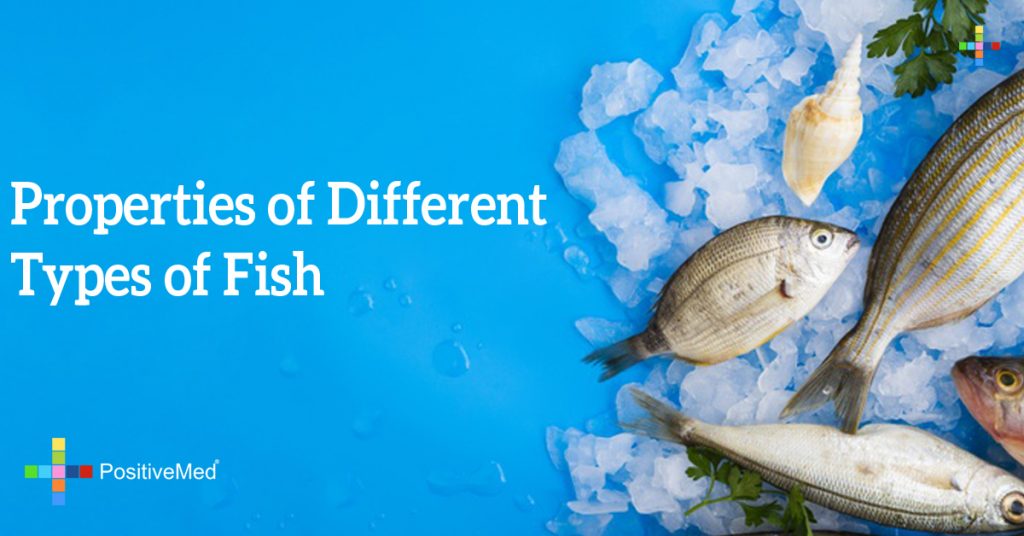
Properties of Different Types of Fish
Fish is central to the Mediterranean diet, probably the healthiest most well-known diet for losing weight, and there is interest in promoting its consumption for a healthy lifestyle.
Fish can be divided by their oil content, the type of water they live in, or by their geographic region. Freshwater fish are those that comes from creeks, rivers, or lakes and they are richer in magnesium, phosphorus, and potassium. In terms of consumption, they are the minority, while saltwater fish are richer in iodine and chlorine. The following are the most common freshwater fish used for human consumption are trout, bass, walleye, and carp while the saltwater list is larger including popular fish types tuna, cod, swordfish, tilapia, salmon, shellfish, and marine bass. The low oil or white fish are the fish with a percentage of fat below 3% like cod, tilapia, and sole. Semi-oily fish have a percentage of 3-5% of fat including trout, swordfish, or bass. Blue fish, or oily fish have the highest percentages of fat, 8-10% of their total weight red tuna, salmon, sardines, and mackerel.
The nutritional properties of fish depends on several factors such as their composition, species of fish, age, the type of alimentation, and the season they were caught in. We can find protein, lipids, vitamins, mineral salts, water, and purines in fish.
Fish have high percentages of water in their total weight. The proportion of water and lipids is inverse, species that have a high percentage of oil possess less water.

Most fish are composed of 18-20% protein. White-meat fish have protein percentages of 12-18%, while semi-oily fish have 16%, the oiliest fish are highest in protein at 18%-24%. Protein is the building block for muscles. Frozen fish has the same amount of protein as fresh fish, however some varieties of dehydrated cod can have concentrations of 60%.
Fish are very low in carbohydrates if not breaded, 0.8% of the daily requirements by the FDA in every 100 grams, or 3.5 ounces.
Fish are rich in essential fatty acids known as Omega-3’s, EPA, and DHA prioritized in modern research due to their role in preventing heart disease, stress-related conditions, and other conditions like dementia, arthritis, and acne. Most of the calories and energetic value of fish comes from healthy fats.
Fish have high concentrations of sodium, potassium, calcium, iron, iodine, and phosphorus in addition to large quantities of B-complex vitamins thiamine or B1, riboflavin or B2, and B3 or nicotinamide. Oysters, anchovies, and sardines are good sources of vitamin B12. Concerning Vitamin C, only caviar and salmon have moderate amounts of this vitamin. Other vitamins like A and D can be found in the liver of different fish including cod.





